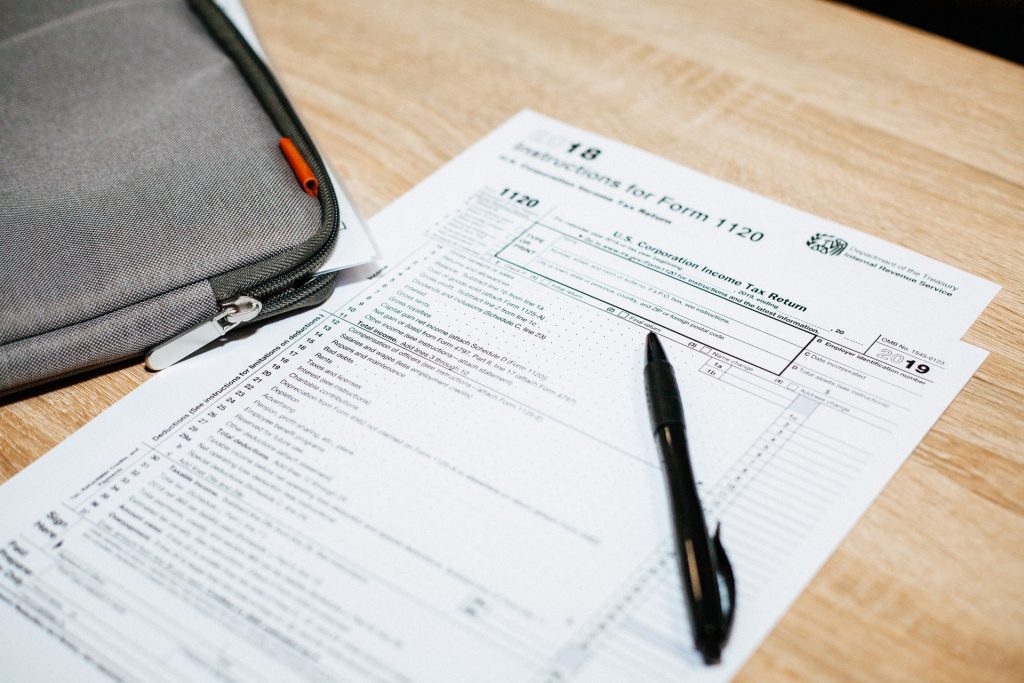How to Manage Your Capital Gains Tax Efficiently

Capital gains tax is something that many people don’t think about until it comes time to prepare their taxes. Sadly, that’s too late. By the time you’re preparing your taxes, there’s not a whole lot you can do about it. Don’t let that happen to you – learn how to manage your capital gains tax early.
Don’t let that happen to you – learn how to manage your capital gains tax early.
There are a few things that you can do to manage your capital gains tax efficiently. First, try to keep as much of your capital gains as possible in your account. This way, you can claim the capital gains tax benefits that come with them and avoid paying additional taxes.
Second, keep track of your rotations. This will allow you to know when you’ve had to sell assets to claim the capital gains tax benefits.
Third, try to keep track of your income and expenses. This will help you determine which costs are related to capital gains and which are not. Finally, make sure that you understand the rules and what you need to do to claim the available benefits.
These are all essential tips to manage your capital gains tax efficiently. By doing so, you can avoid paying any extra taxes and enjoy the benefits that come with capital gains.
Capital Gains Tax
There are a few key points you should keep in mind when it comes to capital gains tax. First and foremost, you must have specific intent to sell your assets. Additionally, you must also report the sale of your purchases to the Internal Revenue Service (IRS). Finally, you must disclose any changes in ownership in your account within 30 days.
If you fall short on these critical points, you could face significant fines and penalties. To manage effectively can help negate these risks and help you manage your capital gains.
Capital Gains Tax (CGT) is an integral part of your taxes and can be challenging to manage. If you fall short on these critical points, you could face significant fines and penalties. Operating effectively can help negate these risks and help you manage your capital gains. To get started, here are three essential tips:
- Review your tax position regularly to ensure you’re well-off and have enough tax-free money to cover your costs.
- Understand the CGT rule and what it affects
- Claim the CGT allowance

Capital gains tax is a tax that is levied when you sell or buy assets that have been held for an extended period, usually over ten years. This tax is paid on the income earned from these assets, and, as a result, it can affect your overall tax bill. To manage your capital gains tax effectively, you need to be aware of the CGT rule and its effects.
Why Investment Income is Taxed
Investment income is taxed at a higher rate than other types of income. This is because investment income is considered taxable income, which means that it is subject to tax in the same way as other income.
Several reasons why investment income is taxed at a higher rate include:
1. Investment income is a form of revenue. Taxed income is paid by the person receiving the income rather than by the person who earned it. This helps to reduce the amount of tax that someone pays overall.
2. Investment income is less likely to be used to pay federal and state taxes than other forms of payment. Investment income is more likely to be used to pay off debts and to invest in other businesses or products. This helps to reduce the overall tax burden on individuals.
3. Investment income can also be used to offset other taxable income, such as social security and Medicare taxes. Taxpayers who have high levels of investment income may find that it offsets a large majority of their total taxable income.
Long Term versus Short Term Capital Gains
Many people confuse capital gains tax and tax on short-term capital gains because they are two different types of taxes. Capital gains tax is a tax that is levied on the income realized from the sale of intangible assets such as stocks, bonds, and real estate. Tax on short-term capital gains is a tax that is levied when the capital gain is derived from the sale of short-term assets.
How to Calculate Capital Gains Tax
Since capital gains tax (CGT) is a tax on the acquisition of new investment, it can be challenging to determine how much CGT should be paid on the sale of an asset. To help with this process, taxpayers must understand the various tax breaks available to them and how they impact their CGT liability.
To calculate the amount of CGT that should be paid on an asset sale, a taxpayer should first determine the asset’s fair market value. This can be done by calculating the sale price of an identical investment in a similar market environment and subtracting the tax rate applied to the sale.
If the asset’s purchase price was below its fair market value, then the taxpayer should not pay CGT on the sale. However, if the asset’s purchase price was above its fair market value, then CGT should be paid on the sale.
Tax Cuts and Jobs Act
The new Tax Cuts and Jobs Act (TCJA) was signed on December 22nd, 2017. The TCJA sets out specific changes to the taxation of capital gains and dividends. The following is a guide on best managing your capital gains tax-efficiently under the TCJA.
The fundamental changes to the taxation of capital gains and dividends under the TCJA are as follows:
- Payments will be taxed at a lower rate than ordinary income.
- The increased dividend tax rate will apply to any compensation paid after the enactment of the TCJA.
- The capital gains tax rate will also be increased from 20% to 25%.
- Changes to the treatment of specific convertible securities will also apply.

The Short Term Capital Gains Tax Rate
There are a few ways to manage capital gains tax-efficiently, but the most common is through the short-term capital gains tax rate. The short-term capital gains tax rate effectively affects long-term capital gains and allows you to tax your short-term profits at a lower rate than your long-term profits.
To qualify for the short-term capital gains tax rate, you must have realized a short-term capital gain in your last taxable year. You can’t recognize a short-term capital gain if you had the net worth of your property below the Internal Revenue Service’s $1 million thresholds.
The Long Term Capital Gains Tax Rate
To make the most of your capital gains tax-efficient, it’s essential to understand the Long Term Capital Gains Tax Rate. The Long Term Capital Gains Tax Rate (LTCGTR) is a rate that applies to taxable capital gains and dividends.
The LTCGTR is 3%. When you earn your capital gains and dividends, the LTCGTR applies. The LTCGTR is affected by the length of time your assets have been held, as well as the price of the assets.
If you have less than three years of taxable capital gains and dividends after you sell your assets, the LTCGTR won’t apply.
New Standard Deduction
One of the most important things to do when managing your capital gains tax is to keep track of your deductions. This can help you save money on your tax bill.
There is a new standard deduction that you can claim if you have a gain or loss from the sale of capital assets. This new deduction is increased by $1,000 for each $10,000 of profit or loss.
To claim the new standard deduction, you must itemize your deductions on your tax return. This means that you must record all of your income and expenses, so you can track how much of your gain or loss is attributable to the sale of capital assets.
You can do a few things to help manage your capital gains tax efficient. First, you should ensure that you have accurate records of all your income and expenses. This will help you to track your gains and losses accurately.
Second, you should consider claiming the new standard deduction. This will allow you to claim the full deduction for the eligible expenses, which will help you to reduce your overall tax liability. Finally, you should make sure that you are paying your capital gains tax bills on time. This will help to reduce your overall tax burden.
State Taxes
Capital gains and losses are taxed at the state level. To minimize your state capital gains tax liability, it is essential to understand the different capital gains and losses rules.
The most important thing to remember is that your capital gains tax liability depends on your state income tax rate. This rate can be affected by several factors, such as your total income, marital status, and state of residence.
To maximize your state capital gains tax liability, it is essential to:
- Understand the different calculations that determine your state capital gains tax liability.
- Know your state’s income tax rate.
- Use the correct marital status exemption information when filing your taxes.
- Use the right form of residence exemption information when filing your taxes.
- Use accurate state sales and use tax information when filing your taxes.

If you’re prepared to efficiently manage your capital gains tax, it’s essential to understand every calculation that affects your state capital gains tax liability. Additionally, be sure to know the state income tax rate that applies to you, as well as the marital status exemption and state of residence exemption information that you must withhold on your federal taxes. Finally, be sure to file your taxes correctly, using the “1040EZ” form and the “Form 8606.”
Capital gains tax is a tax that you must pay on the profits you make from the sale of assets. The tax applies to those with an annual income of $50,000 or more. The tax is collected by the state in which you reside, so it is essential to be aware of all the taxes that apply to your state capital gains tax liability. Additionally, since the state capital gains tax rate varies depending on the taxpayer’s income, understanding the state capital gains tax rate will help you determine whether it is a better option to hold or sell your assets.
Conclusion
In conclusion, the capital gains tax rate exists because the income from capital needs to be taxed. In response to other taxes, such as income tax, capital gains tax has been designed with a considerable rate attached to it. The intent behind having a separate capital gains tax rate is to prevent persons from avoiding taxation on taxable income by engaging in transactions or creating new assets that will have them have a lower taxable income. This is not just for homeowners. As mentioned above, anyone who gains profit from exchanges will have this tax applied.
Read more at: https://studentloansolved.com/category/finance







